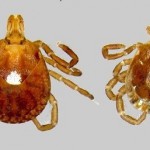Category Science & Technology
Microbiome and human health workshop
The opportunity to couple this emerging field and a traditional strength of UW–Madison — large longitudinal studies such as the Wisconsin Longitudinal Study; the Beaver Dam Eye Study; MIDUS, Midlife in the United States; and the Wisconsin Sleep Cohort — will be explored in a small, one-day workshop to be sponsored by the Center for Demography of Health and Aging and the Center for Demography and Ecology. Read More
Tuberculosis genomes portray secrets of pathogen’s success
By any measure, tuberculosis (TB) is a wildly successful pathogen. It infects as many as two billion people in every corner of the world, with a new infection of a human host estimated to occur every second. Read More
Swimming through complex bodily fluids gets simpler
It's an uncomfortable truth of life that our bodily fluids are chock full of microscopic swimming organisms - maybe even more uncomfortable to researchers that those little swimmers do laps faster than the theories describing their motion would allow. Read More
Essential mechanism of symbiosis found in Hawaiian squid
Experiments at the University of Wisconsin–Madison with a small squid that glows in the dark have uncovered a complex conversation that allows the newly hatched squid to attract the glowing, symbiotic bacteria that disguises it against predators. Read More
WID researcher locates “virtual eyes” to enhance 3D experience
3D movies are a popular trend this year, with countless films opting to include features that make viewers feel as though they are a part of the action. But what if 3D technologies in movies were not just a feature, but an entire, encapsulating experience? Read More
Seminar explores role of proteins in health and disease
The Human Proteomics Program at UW–Madison and the BioPharmaceutical Technology Center Institute on Aug. 1 will present the Wisconsin Human Proteomics Symposium: Targeted Proteomics and Systems Biology in Health and Disease. Read More











